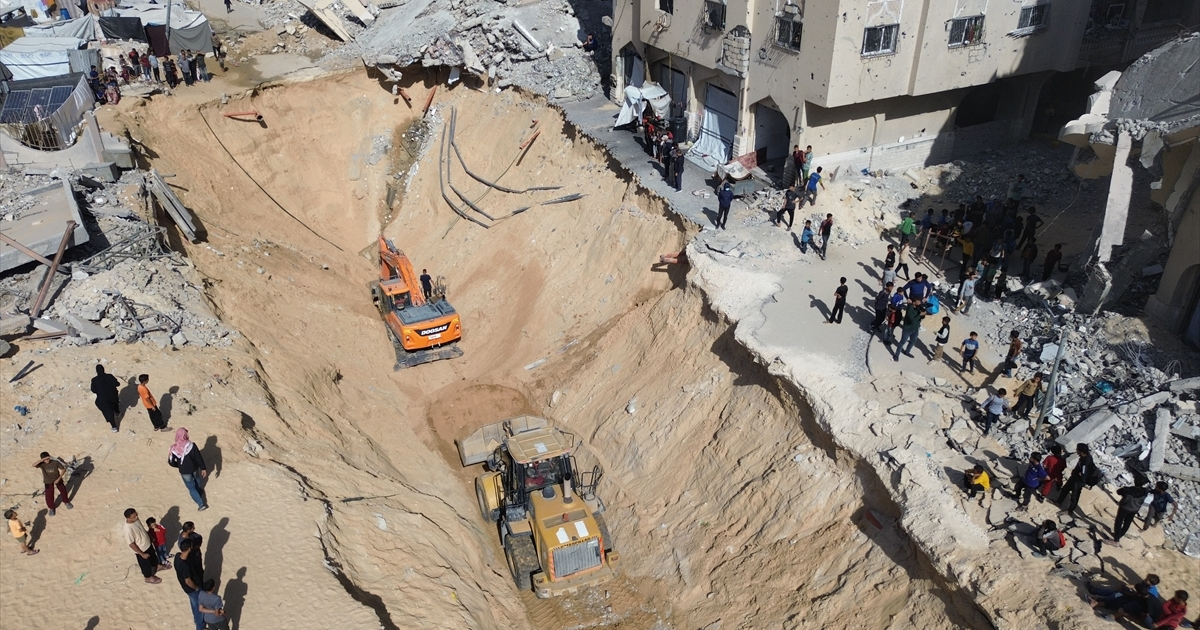Israel and Hamas have exchanged the remains of more captives, but the Palestinian group says Israel is failing to uphold the terms of the Gaza ceasefire agreement by refusing to reopen the crucial Rafah border crossing with Egypt.
The bodies of two more Israeli captives, one soldier and one civilian, were returned to Israel late on Tuesday, and identified early on Wednesday as those of Aryeh Zalmanovich, 85, and army Master Sergeant Tamir Adar, 38.
Recommended Stories
list of 4 itemsend of list
The International Committee of the Red Cross (ICRC) had earlier received the bodies in Gaza, in a handover organised by the Qassam Brigades, the armed wing of Hamas.
The Israeli military said that Zalmanovich died in captivity in Gaza on November 17, 2023, and that Adar was killed in fighting in southern Israel on October 7, 2023, and his body was taken back to the Palestinian territory.
Hamas has now handed over the bodies of 15 Israeli captives as part of the ceasefire agreement with Israel.
An estimated 13 more sets of remains are expected to be returned to Israel, although Hamas has said the widespread devastation in the Palestinian territory and the Israeli military’s continuing control of certain parts of Gaza have slowed the recovery of the bodies.
The Palestinian group also released 20 living captives in one day at the start of the ceasefire.
Earlier on Tuesday, the bodies of 15 Palestinians killed in Israeli detention were returned to Gaza, where they were taken to the Nasser Medical Complex for identification, according to a medical source.
Under the ceasefire agreement, Israel released some 2,000 living Palestinian detainees from Israeli prisons, and has committed to releasing the remains of 360 more deceased Palestinians.
A forensics team that received the bodies of some 45 Palestinians returned by Israel last week said that some arrived still shackled and bearing signs of physical abuse and possible execution.
Ubai Al-Aboudi, the executive director of the Bisan Center for Research and Development, said that Palestinians imprisoned by Israel should also be considered to be “hostages”.
“This entire system dehumanises Palestinians,” Al-Aboudi told Al Jazeera from Ramallah, adding, “when we talk about Palestinian prisoners, we are actually talking about hostages”.
Al-Aboudi noted that about 20 percent of the Palestinian population has been arrested or detained by Israel over the decades, and that the situation in Israeli prisons has deteriorated dramatically since the war on Gaza began in October 2023.
“Most of them are held without any due process, without being charged, and just based on military orders by a foreign military occupation,” he said.
Rafah crossing still closed
A delegation of Hamas officials, attending talks with Turkish officials in Qatar on Tuesday, said that the Palestinian group remains committed to the ceasefire deal despite Israel’s “repeated violations”.
Israel is delaying the implementation of the ceasefire by failing to open the Rafah crossing “for the travel of sick and injured people, and its prevention of the entry of humanitarian aid into Gaza”, the Hamas officials said in a statement.
Mujahid Muhammad Darwish, head of the Hamas delegation, also highlighted “the inalienable rights of our people to self-determination and their right to an independent state with Jerusalem as its capital”.
Turkiye was among the signatories of US President Donald Trump’s document on the Gaza ceasefire deal earlier this month in Egypt’s Sharm el-Sheikh.
The Rafah crossing has remained closed since May 7, 2024, when it was seized by Israeli forces as they invaded the city of Rafah in the Gaza Strip’s south, where close to one million people were sheltering at the time.
The United Nations has described the crossing, which connects the Palestinian territory to Egypt, as one of two “arteries” for humanitarian access.
The UN’s highest court, the International Court of Justice (ICJ), ordered Israel to reopen the Rafah crossing on May 24, 2024, following an emergency submission from South Africa, but the crossing has remained closed, with only limited access via the adjacent Karem Abu Salem crossing.
Residents of Rafah were only able to return to the destroyed city after a temporary ceasefire began on January 19, 2025, which also saw the Rafah crossing temporarily reopen to allow medical evacuations in February, before Israel issued new forced evacuation orders for Rafah at the end of March.
The crossing has remained closed for humanitarian aid access since May 2024.
